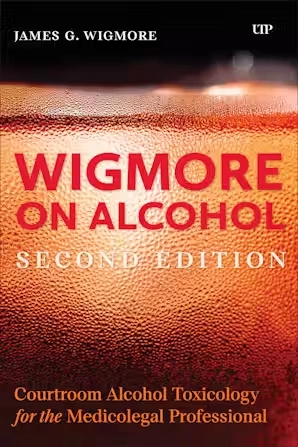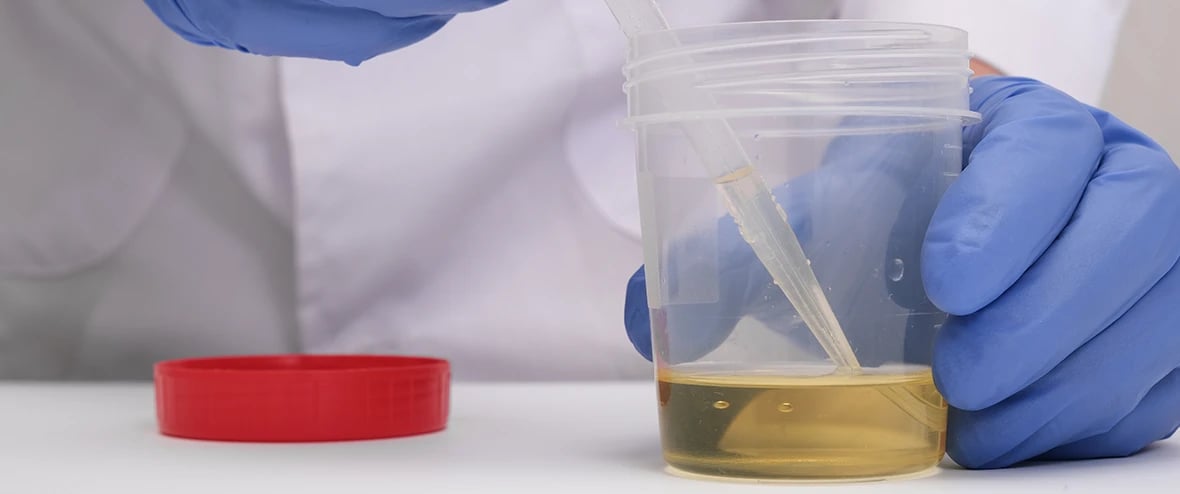Wigmore on Alcohol

The Definitive Medicolegal Resource on Blood Alcohol Science
This authoritative guide is a must-have for medicolegal professionals, attorneys, and healthcare practitioners who need access to the latest research on blood alcohol analysis. With expertly summarized findings from over 1,200 global studies, it presents complex medicolegal data in a clear, structured format—making it invaluable for both experts and non-specialists.
After years of anticipation, the highly regarded Wigmore on Alcohol has been updated with a second edition, adding more than 400 new studies on medicolegal alcohol toxicology. The expanded content includes critical sections on alcohol use disorder (AUD), withdrawal syndrome (AWS), fetal alcohol syndrome (FAS), and long-term health effects, along with new appendices for legal and medical reference.
Each chapter begins with insightful quotes from historical and cultural figures—from Abraham Lincoln to Albert Einstein—providing deeper context on alcohol’s role in society.
Widely recognized as the leading medicolegal reference on alcohol-related evidence, Wigmore on Alcohol, 2e offers an unmatched compilation of scientific research, meticulously organized for courtroom and clinical use. Its accessible format ensures professionals can quickly find the data they need to support their cases or studies.
Wigmore on Alcohol Reviews
This is truly an exceptional resource for any active professional and practitioner working in the area of forensic alcohol be they a toxicologist, researcher, educator, prosecutor, defense attorney, judge or law enforcement officer. As one of the online reviewers stated, Wigmore on Alcohol will be the new “Alcohol Bible” for years to come.
Newsletter, International Association for Chemical Testing
This book is a must for anyone who is working on medicolegal issues involving alcohol. It will be appreciated by lay persons interested in this topic as well as scientific and legal experts involved in alcohol-related medicolegal issues.
University of Kansas Medical Center
In short, Wigmore on Alcohol is a wonderful research tool that will prove a valuable resource in both legal and scientific libraries.
Ontario Court of Justice
Wigmore on Alcohol FAQs
What makes this book the best resource on alcohol toxicology?
It compiles over 1,200 global studies, including 400+ new peer-reviewed research, making it the most comprehensive medicolegal reference.
Where can I buy Wigmore on Alcohol?
It is available through the University of Toronto Press and Amazon.
What new content is included in the 2nd edition?
New sections cover alcohol use disorder (AUD), withdrawal syndrome (AWS), fetal alcohol syndrome (FAS), and long-term health effects, plus updated appendices.
Is Wigmore on Alcohol useful for non-experts?
Yes, its clear, structured format makes complex medicolegal data accessible to both specialists and general readers.
How does this book help legal professionals?
It provides court-admissible scientific evidence on blood alcohol levels, crucial for DUI cases and medicolegal disputes.
Recent News

Research Update: The Effects of Alcohol on Postmor...
“And now for something completely different.” Is postmortem bladder urine volume an indication of alcohol/drug...
Read More
How Long Does THC Stay in Your Body and Impact Rea...
How long does THC stay in your body, and more importantly, how long does it...
Read More
The Three-Headed Hydra at Work: Which Drug Poses t...
Workplace injury prevention requires understanding which substances actually increase accident risk. The three most destructive...
Read More
Trials of A Forensic Toxicologist: Cross-Examinati...
Cross-examination represents the ultimate test of expert witness credibility, as the great legalist John Henry...
Read More